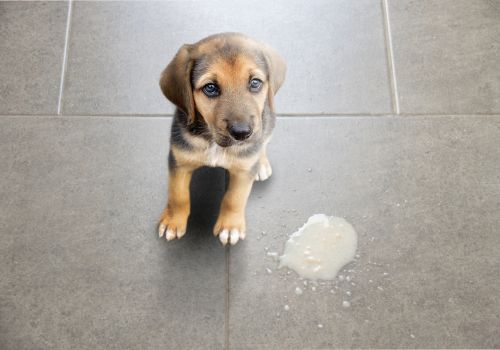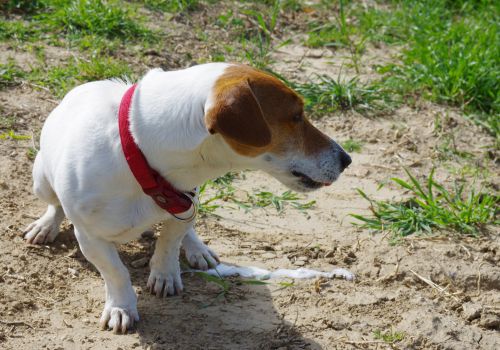Let's talk about when your beloved dog's tummy decides to host a little rebellion, manifesting in diarrhea and vomiting. These symptoms, common as they are concerning, usually signify a group of conditions broadly referred to as gastroenteritis. But fear not, because we're here to guide you through these choppy waters.

What to Do:
Hold off on food and water for a bit. We know it sounds counter-intuitive, but it's crucial in giving your pet's digestive system a much-needed time-out.
Monitor your pet for signs of dehydration - dehydration can be a sneaky side-effect of these symptoms, especially in our senior doggos and young pups.
If the diarrhea or vomiting persists or your pet seems unwell, it's time to play it safe and seek help from a professional. Trust us, you don't want to mess with fluid loss and electrolyte imbalance.
If your pet manages to keep it together for 6 to 8 hours without vomiting, you can start to slowly reintroduce clear liquids (water, Gatorade, Pedialyte, or other electrolyte solutions). A good rule is 1 teaspoon per pound of body weight, given every 2 or 3 hours throughout the day and night.
If all goes well, the following day, you can offer small, frequent meals of boiled hamburger and rice or boiled chicken and rice. If your pet turns up their nose at the food, starts a second round of the vomit Olympics, or continues to experience diarrhea, it's time to take a trip to the veterinarian.
Just to be on the safe side, let your sick pet have some alone time, away from other pets.

What NOT to Do:
Don't play veterinarian and give your pet any over-the-counter or prescription meds without consulting with a real veterinarian first.
Don't let your pet eat or drink anything until they've managed to go 6 to 8 hours without vomiting.
Diarrhea and vomiting can be symptoms of everything from minor tummy trouble (like eating something they shouldn't have - you know how they are) to more severe conditions such as poisoning. If your pet is showing a fever, it might indicate an infection. Remember, most infections that cause diarrhea and vomiting can spread to other pets, so keep your sick pup isolated.
Finally, if your pet isn't their usual energetic self and is experiencing vomiting and/or diarrhea, it's best to see a veterinarian. The sooner you catch and treat the problem, the sooner your best friend can get back to their tail-wagging, face-licking self.
Don't have a vet in your area yet? We can help you find a local veterinarian.
If you have more questions the GeniusVets Telehealth platform will give you unlimited access to text and/or video calls with board-certified veterinarians! To learn more click here.


